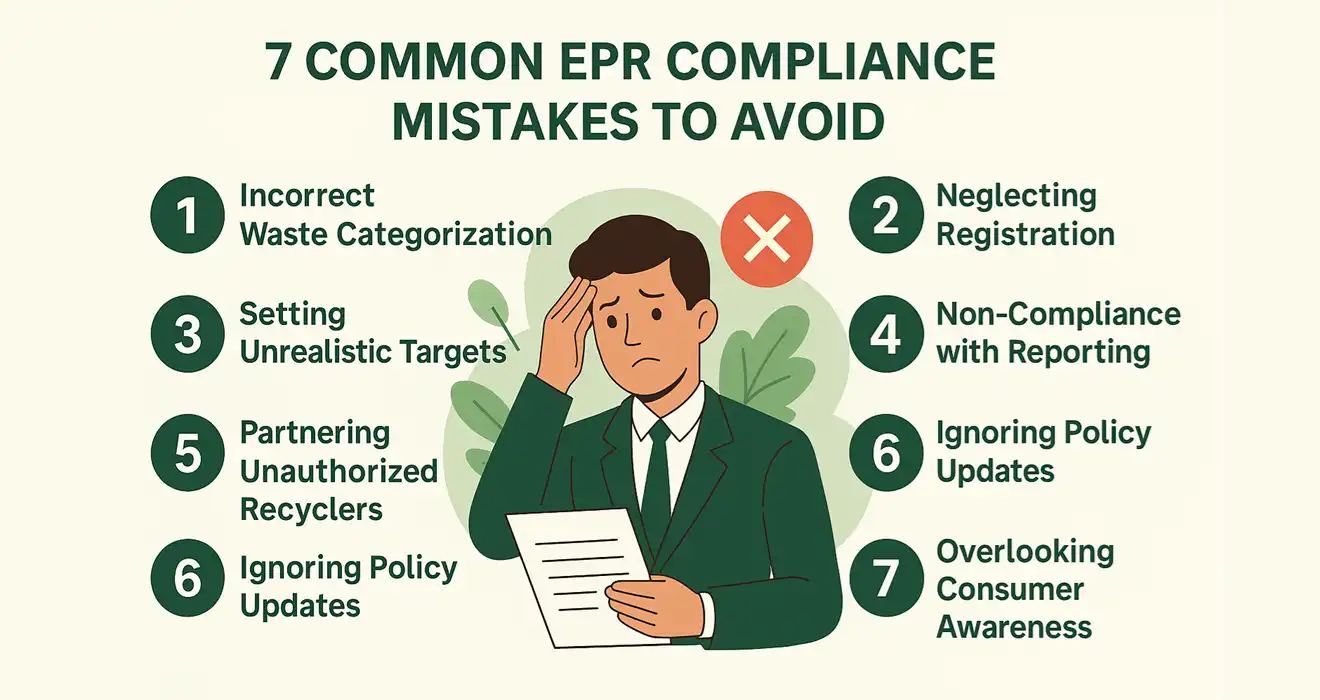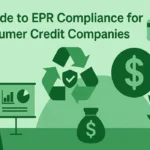Extended Producer Responsibility (EPR) is no longer optional—it’s a legal and environmental imperative for businesses dealing with plastic, e-waste, batteries, tyres, oil, and other post-consumer products. However, despite growing awareness, many producers and importers still stumble when it comes to EPR compliance.
In this blog, we uncover 7 common mistakes businesses make during their EPR journey—and how to avoid them with the right approach.
1. Incorrect Waste Categorization
One of the most fundamental errors is misclassifying the type of waste generated. Businesses often fail to differentiate between plastic waste and multi-layered packaging, or e-waste and IT equipment, leading to faulty registrations.
🛑 Why it matters:
Incorrect categorization can delay your EPR authorization or lead to future legal issues during audits.
2. Neglecting Registration
Some companies still operate without registering on the CPCB EPR Portal. Others assume a license from one category (e.g., plastic) covers others (e.g., batteries), which is not true.
🛑 Why it matters:
Unregistered producers/importers are liable for fines and bans under India’s EPR rules.
3. Setting Unrealistic Collection Targets
Trying to meet targets too quickly—or setting unsustainable targets during self-declarations—can backfire. Businesses often commit to recovering more waste than they can handle.
🛑 Why it matters:
Failing to meet targets attracts penalties and can disqualify you from future extensions.
4. Non-Compliance with Reporting
Annual reports are not just formalities. Many businesses fail to submit accurate or timely reports on waste collection and recycling.
🛑 Why it matters:
CPCB may suspend or cancel your EPR license, even if you’ve been collecting responsibly.
5. Partnering with Unauthorized Recyclers
Cutting corners by choosing informal waste handlers or unregistered recyclers is a major mistake.
🛑 Why it matters:
Only authorized recyclers provide valid documentation. Without this, your effort doesn’t count toward compliance.
6. Ignoring Policy Updates
EPR policies evolve frequently. Missing updates like revised waste targets or category changes can derail your compliance efforts.
🛑 Why it matters:
Outdated practices expose you to compliance risks and missed opportunities for cost-saving.
7. Overlooking Consumer Awareness
Many brands neglect their obligation to educate consumers about disposal methods or take-back schemes.
🛑 Why it matters:
Awareness is part of EPR compliance. It’s not just about collection—it’s about circular responsibility.
Final Thoughts
EPR compliance is about more than ticking boxes. It’s a holistic approach that requires planning, vigilance, and reliable partnerships.
At TEN R Sustainability LLP, we help businesses avoid these mistakes by offering:
✅ Proper documentation
✅ Registered recyclers
✅ Compliance tracking
✅ Reporting assistance
✅ Policy alerts
Need Support?
We’re just a message away.
📍 TEN R SUSTAINABILITY LLP, ALT F 101, 2ND FLOOR, MR-01, NH-19, CRRI, OKHLA, NEW DELHI – 110044
📧 info@10rsustainability.com
🌐 www.10rsustainability.com





